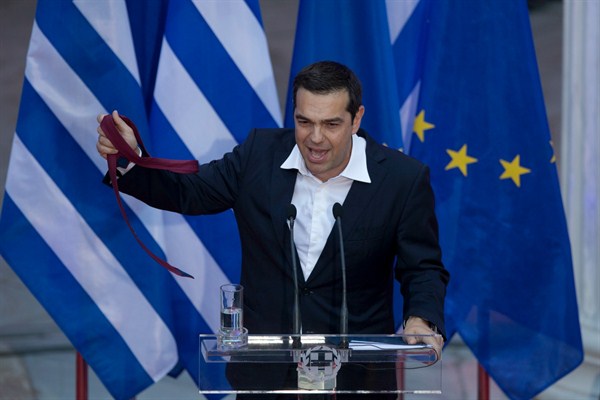On June 22, Greece reached an agreement with its eurozone partners to formally exit from the latest of a series of bailout programs that have provided an economic lifeline to Athens throughout its debt crisis, but at the cost of eight years of brutal austerity. To celebrate the deal, Greek Prime Minister Alexis Tsipras finally donned a tie, something he had pledged in 2015 not to do unless Greece was granted debt relief. In an email interview, Angelos Chryssogelos—a teaching fellow in politics at the Department of European and International Studies, King’s College London, and associate fellow of the Europe Program of Chatham House—and Angelos Angelou, a doctoral candidate at the European Institute of the London School of Economics, discuss the terms of latest deal and its implications for Greece’s budgetary priorities and politics.
World Politics Review: What does the latest deal between Greece and its EU partners change in terms of Greece’s public debt and budgetary constraints? What remains unchanged, and what has been left unresolved for later?
Angelos Angelou and Angelos Chryssogelos: The recent agreement by eurozone finance ministers “reprofiled” Greek debt by extending the maturity dates on a number of loans by 10 years. Eurozone countries also undertook two commitments to be fulfilled by 2022: to abolish the stepped-up interest rate related to the debt buy-back tranche of the second Greek bailout program; and to transfer to Greece all related profits from the European Central Bank’s Security Market Program and Agreement on Net Financial Assets, which allowed the ECB and the Bank of Greece to purchase Greek sovereign bonds. In addition, Greece will also obtain the last tranche of its loan under the European Stability Mechanism, amounting to 15 billion euros. Of that, 5.5 billion euros will be used for debt-servicing, and 9.5 billion as a cash buffer. This brings Greece’s cash buffer up to a total of 24.1 billion euros, covering the government’s fiscal needs for the next 22 months.

